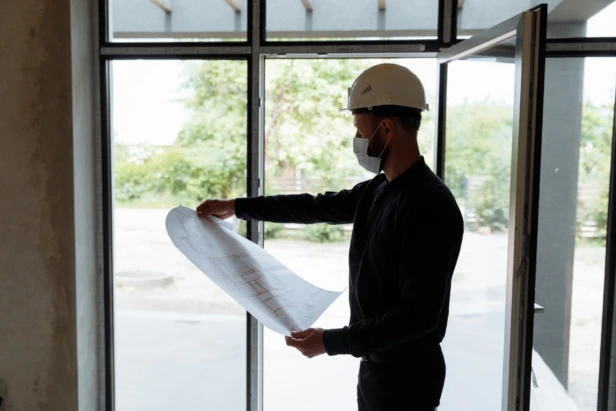Texas breaks from the standard approach most states follow. No state-issued general contractor license exists here, setting us apart from places like California or Florida where comprehensive state licensing governs the construction industry.
Success as a general contractor in Texas requires navigating business registration, municipal requirements, proper insurance coverage, and specialty trade licensing when electrical, plumbing, or HVAC work enters the project scope. Cities like Austin, Dallas, Houston, and San Antonio each maintain distinct contractor registration processes and permit requirements that we must understand before mobilizing equipment or breaking ground.
Do You Need A Texas General Contractor License—Or Just Local Registration And Permits?

Texas stands apart from most states by not requiring a general contractor license at the state level. We navigate this unique landscape by focusing on business registration, local compliance, and proper documentation rather than pursuing a statewide license.
The foundation starts with business registration through the Secretary of State Business Services Portal. Most contractors establish an LLC, corporation, partnership, or sole proprietorship depending on their risk profile and tax preferences. We secure an Employer Identification Number (EIN) from the IRS to handle payroll and tax obligations.
Local authorities fill the regulatory void left by the state. Cities and counties impose their own contractor registration requirements, permit processes, and compliance standards. Some jurisdictions require annual registration fees, proof of business location, and demonstration of financial stability through insurance or bonds.
Municipal contractor registration varies significantly across Texas markets. We verify each jurisdiction’s specific requirements before mobilizing crews or submitting bids. Dallas requires annual contractor registration with proof of insurance coverage. Austin mandates contractor permits before work begins, while Houston operates on a permit-by-permit basis through their centralized permitting system.
Project permits remain essential regardless of licensing structure. We pull building permits, trade permits, and specialty permits based on scope. Each permit triggers inspection requirements and closeout procedures that affect certificate of occupancy or certificate of completion issuance.
Contractor license bonds supplement registration in many Texas cities. Bond amounts typically range from $5,000 to $25,000 depending on work type and jurisdiction. These bonds protect property owners and ensure compliance with local building codes, not licensing requirements.
Texas mechanics lien rights operate independently of licensing status. Property owners face lien exposure from unlicensed contractors who properly follow lien notice procedures. This creates unique risk management considerations that we address through contract language and payment procedures.
We maintain compliance checklists for each market territory. Before bidding any project, we verify current registration status, permit requirements, bond obligations, and insurance minimums. Local regulations change frequently, making ongoing verification essential for legal operation.
What Specialty Licenses, Insurance, And Bonds Are Required In Texas?
While Texas doesn’t require a statewide general contractor license, specialty trades operate under strict state regulations. Electricians, plumbers, and HVAC contractors must hold valid licenses from specific state agencies to perform their work legally.
Electrical Contractor Licensing Through TDLR
The Texas Department of Licensing and Regulation oversees electrical licensing with rigorous requirements. For a Master Electrician license, contractors need 12,000 hours of supervised experience plus at least two years holding a journeyman license.
The application process includes a $45 fee and a comprehensive two-part examination requiring a minimum 70% passing score. We coordinate closely with the TDLR to ensure our electrical partners maintain current licensing and meet all continuing education requirements.
Plumbing Contractor Requirements Under TSBPE
The Texas State Board of Plumbing Examiners handles plumbing licensure through a master plumber pathway. Contractors must first complete journeyman requirements before advancing to master plumber status.
For independent contracting, the Responsible Master Plumber designation requires completion of a 24-hour training course and proof of $300,000 in commercial liability insurance. The annual renewal fee reaches $420, with the initial application costing $345.
HVAC Class A And B Licensing
HVAC contractors work under TDLR oversight with two license classifications. Class A licenses permit work on any size unit, while Class B restricts work to cooling systems under 25 tons and heating systems under 1.5 million BTUs per hour.
Licensing requires either 48 months of practical experience under a licensed contractor or 36 months of experience plus 12 months holding a technician certification. The application fee is $115, and candidates must pass a licensing exam with at least 70% accuracy. Proof of general liability insurance is mandatory before license issuance.
Insurance Requirements Across Trades
We maintain comprehensive insurance coverage to meet both state requirements and city specifications. General liability insurance protects against property damage and bodily injury claims during construction activities.
Workers’ compensation insurance isn’t required for private construction work but becomes mandatory when contracting with government entities. Commercial auto insurance covers all business-owned vehicles used for construction activities and material transport.
Municipal Bonds And Coverage Amounts
Cities often require contractor license bonds ranging from $5,000 to $25,000, depending on the municipality and project scope. We secure bonds through licensed surety providers to meet local registration requirements.
Bond amounts vary significantly between cities, with Houston requiring $25,000 for sign contractors and smaller municipalities setting $1,000 minimums for specific trades. Each jurisdiction sets its own bonding requirements independent of state regulations.
Penalties For Unlicensed Work
Operating in a licensed trade without proper credentials carries serious consequences. Violations typically result in fines between $1,000 and $5,000, along with potential license suspensions.
The state classifies unlicensed work in regulated trades as a Class C misdemeanor, which can result in additional legal complications beyond administrative penalties. Both TDLR and TSBPE actively investigate complaints and pursue enforcement actions against violators.
How Do Contractor Rules Differ in Austin, Dallas, Houston, and San Antonio?

Each major Texas city operates its own contractor system. We handle different processes depending on where our projects are located.
Austin Requirements
Austin requires contractor registration through the Development Services Department. We register once and don’t need annual renewals unless business information changes.
After registration, we handle building permits for each project. We activate approved permits, pay required fees, and schedule inspections through the Austin Build + Connect Portal. Projects wrap up with certificates of occupancy or certificates of completion when needed.
Austin may soon require $10,000 annual bonds and minimum liability insurance of $300,000 for bodily injury per occurrence plus $100,000 for property damage per accident.
Dallas Registration Process
Dallas maintains separate contractor registration through its Building Inspection Division. We pay a $120 annual registration fee and must show proof of a physical business location within city limits.
Our registration covers multiple work categories including residential and commercial general contracting, roofing, fencing, foundation work, demolition, and pool contracting. Dallas requires proof of liability insurance, workers’ compensation, and commercial auto coverage before registration approval.
Starting May 2025, Dallas will transition to the DallasNow system for permit applications, inspection scheduling, and registration renewals.
Houston Project-Based Approach
Houston stands apart by not requiring general contractor registration. We obtain permits on a job-by-job basis through the Houston Permitting Center.
All businesses operating in Houston must complete basic business registration. The city may require proof of insurance depending on specific project types and permits. This project-specific approach means we handle permitting differently for each job rather than maintaining ongoing registration.
San Antonio Contractor Categories
San Antonio divides contractors into two distinct paths through its Development Services Department. We choose between Home Improvement Contractor registration for non-structural work or Residential Building Contractor registration for structural projects.
Home Improvement Contractors pay $150 for two-year registration and need $300,000 per occurrence liability insurance. Residential Building Contractors pay $170 for two years and must carry $500,000 per occurrence coverage. Both categories require FBI background checks and government-issued photo identification.
These municipal differences require careful planning when we work across multiple Texas cities. Each location has unique permit processes, insurance requirements, and registration fees that affect project scheduling and cost estimation.
What Steps Help You Start And Stay Compliant As A Texas General Contractor?
We organize the path to Texas contractor compliance through a systematic approach that addresses the unique regulatory landscape. These steps ensure we maintain legal standing while building the foundation for sustainable business operations.
Define Your Project Scope And Trade Requirements
We start every project by determining which specialized trades our scope of work includes. When projects involve electrical, plumbing, or HVAC systems, we ensure the appropriate state licenses are in place before work begins. This early assessment prevents costly delays and potential violations during construction.
Each trade carries specific licensing requirements through either the Texas Department of Licensing and Regulation or the Texas State Board of Plumbing Examiners. We verify that our team or subcontractors hold valid credentials for any licensed work within our project boundaries.
Establish Your Business Structure And Federal Registration
We choose our business structure and complete registration with the Secretary of State. Options include sole proprietorship, partnership, LLC, or corporation, each carrying different liability protections and tax implications. Registration through the SOSDirect Business Services Portal establishes our legal business entity.
Obtaining an EIN from the Internal Revenue Service follows immediately after state registration. This federal identification number becomes essential for tax reporting, insurance applications, and business banking. We keep EIN documentation readily accessible for permit applications and contractor registration processes.
Research And Complete Local Contractor Registration
We check local requirements in each city where we plan to operate. Municipal rules vary significantly across Texas, from Austin’s one-time contractor registration to Dallas’s annual renewal requirements. Some jurisdictions require contractor license bonds ranging from $5,000 to $25,000.
Our compliance tracking system alerts us to different registration deadlines and renewal dates. We maintain separate files for each municipality, including copies of registration certificates, fee receipts, and any required bond documentation.
Manage Project Permits And Inspections
We pull the appropriate permits for each project before mobilizing crews or materials. Municipal permitting centers issue these authorizations on a project-specific basis, with requirements varying by location and scope of work. Houston operates strictly on job-by-job permits, while other cities may require broader contractor credentials.
We schedule inspections at required construction milestones and ensure crews are prepared for each review. Projects close out with certificates of occupancy or certificates of completion when applicable. These final documents confirm code compliance and allow occupancy.
Maintain Required Insurance Coverage
We carry general liability insurance as our baseline protection against third-party claims for bodily injury, property damage, and advertising injury. Coverage amounts typically range from $300,000 to $500,000 per occurrence, depending on local requirements and client specifications.
Workers’ compensation becomes mandatory when we contract with government entities, though private work in Texas generally doesn’t require this coverage. We maintain commercial auto insurance for all business-owned vehicles, meeting the state’s minimum liability limits of 30/60/25. Our insurance certificates remain current and readily available for permit applications and client verification.
Track License Renewals And Reciprocity Limitations
We monitor renewal deadlines for all state trade licenses held by our team or regular subcontractors. Electrical, plumbing, and HVAC licenses require periodic renewal with continuing education requirements. Missing renewal deadlines can result in doubled fees and business disruption.
Texas does not offer reciprocity agreements for general contractors. For specialty trades, out-of-state licenses may substitute for experience requirements in some cases, but each situation requires individual evaluation. We verify license validity before engaging any out-of-state trade contractors.
Maintain Comprehensive Project Records
We keep detailed records of all permits, inspection reports, insurance certificates, and bond documentation for each project. These documents support our compliance history and provide evidence of proper procedures if disputes arise. Our filing system organizes records by project and renewal dates.
Texas mechanics lien rights do not depend on holding contractor licenses, but proper documentation strengthens our legal position. We maintain records for at least three years, covering the typical statute of limitations period for construction-related claims.
Conclusion And Next Steps

Unlike many states, Texas operates without a state-issued general contractor license. We understand this system puts more responsibility on contractors to navigate local regulations and coordinate multiple compliance layers. Success requires mastering business registration fundamentals, securing proper insurance coverage, and ensuring every licensed trade professional meets state requirements.
The path forward centers on three critical actions. First, register your business entity with the Secretary of State and obtain your EIN to establish legal operations. Second, research municipal registration requirements in your target markets since cities like Dallas require annual contractor registration while Houston operates on a permit-by-permit basis. Third, develop systems for tracking permit applications, scheduling project inspections, and maintaining current insurance policies and bonds throughout every construction cycle.
Ready to build your contracting business with proper legal foundations? Contact EB3 Construction to discuss how we handle compliance across Texas markets.




